I recently finished a book called Smartcuts, which instantly shot to the top of my list of favorite business books. As I started thinking about it, I noticed that the best business books have challenged me to look at life and business in different ways. Their key lessons have stuck in my head and guided me as much or more than any lesson I learned during my formal undergrad or graduate business education. While I love the formats of podcasts, movies, blog posts, and news articles, books are often the most impactful to me. When done right, their long form allows the author to drill a thought(s) into your mind so that it sticks with you forever. The repetition, supporting evidence, and stories make the ideas expressed in books sticky. I’ve assembled this list of my all-time favorite business books, plus their stickiest lessons that have made the biggest impacts on both me personally and our business.
Smartcuts
Perfect For: The person who feels stuck in their career or with their business
Main Lesson: The path towards greatness is hardly linear; instead, use inspiration and advancements from other areas and apply it to your big goals and problems.
There’s a fallacy that says if you work hard, network, prove you’re valuable, and put in the hours for long enough in your career, you’ll eventually make it to a position of high power or earning potential. The author of this book argues that some of the most successful people were able to achieve success in fractions of the time it takes people on the more traditional path. This book covers those key factors so that you can take “smartcuts” (think shortcuts with integrity) towards bigger and quicker success.
Note: I felt a strong personal connection with a lot of the smartcuts that were shared because Julia and I have used them (sometimes consciously, sometimes unconsciously) to achieve many of our successes.
Hard Thing About Hard Things
Perfect For: The entrepreneur who has faced some challenges lately and doesn’t know what to do next
Lesson Learned: Hard decisions aren’t fun or easy to make, but often, they are crucial for our long-term success. Instead of putting off those hard decisions, embrace them as soon as the right decision is clear.
Speaking from experience, building a business is really, really tough. Stories of successful entrepreneurs, big ideas, followed dreams, and fortunes made can be incredibly inspiring for entrepreneurs. However, through his experience as a tech founder and top VC, Ben Horowitz knows that often, companies face moments that are truly testing. Sometimes, the only way to save the company is to make the most painful decision.
The Lean Startup
Perfect For: The person with the big idea who doesn’t know where to start
Lesson Learned: Every major initiative can be broken into smaller steps so that data can be collected at every stage and investments can be adjusted
Starting a business or launching a new feature used to start with a big idea. Then, focus groups would try to identify what potential customers might like in a product, the idea would be vetted by higher-ups in the company, and the best of the best would get approved. Months or years would be spent in development before the launch. Most startups would fail. This way of thinking has since been replaced by the “lean startup” method, which advocates for launching products as soon as possible with feedback loops set in place so that teams can quickly learn and apply that learning to future iterations. When following the lean startup method, we often discover things we could have never known in the beginning, including potential threats or even more lucrative opportunities, allowing us time to pivot towards different paths.
I read this book six months after starting GMG with Julia, and many of the lessons I learned from it changed how we approached this business. Most importantly, it taught us how to be sensitive towards what our readers really want, as they were demonstrating by their user behavior.
The Innovator’s Dilemma
Perfect For: The person working in large corporations
Lesson Learned: The same things that made you successful in your rise to the top might not be relevant in the future. You have to be willing to blow up what you have built in order to thrive in a changing market before it’s too late.
The author of this book details industry after industry where disruptive innovation from new incumbents has replaced the previous market leader. The biggest cause of this is that innovation and market fit create lots of business opportunities. Companies expand to capitalize on those opportunities, mostly through sustaining improvements that make their product incrementally better over time. However, disruptive technologies, sometimes found in completely different industries, solve customers’ problems in different ways, which are often magnitudes better than existing products.
Getting To Yes
Perfect For: The person about to ask their boss for a raise
Lesson Learned: Whether you’re aware or not, negotiations are everywhere in business and within our interactions with each other. Understanding the underlying interests that drive our negotiating positions is the number one key to successful negotiations
Negotiations are often thought of as a zero-sum game. In these scenarios, power is wielded to crush opponents. However, most negotiations are not settlements of the end of relationships, but actually the beginning or middle of them. As negotiators, we should work hard to understand what is really driving each side’s position. If you can find shared interests and form those into shared goals that you can focus on, both sides in the negotiation benefit.
The One Thing
Perfect For: The person who has big dreams but keeps getting sidetracked
Lesson Learned: When determining whether not to take on something new, use this filter: if it’s not a “hell yes,” then it’s a “no.”
You can’t expect to perform your best if you haven’t taken every step possible to focus on the one thing in your life that matters the most. To do this, eliminate distractions that steal your attention. Save your best brainpower moments for that one thing. For example, if your best hours for productive work are 9 A.M.-12 P.M., don’t waste that time on email, in meetings, or on anything that isn’t directly tied to what you need to achieve. Say no way more than you say yes. (Note: in my opinion, early in your career, this guidance should be reversed—say yes way more than you say no. The former applies more to established individuals and businesses at all stages of development, who should be very selective about what they say yes to.)
The Signal and the Noise
Perfect For: The person who has a little too much confidence in their big ideas and beliefs about the world
Lesson Learned: Avoid blind faith in reported statistics. Rarely are predictions made with proper factoring for margin of error. Normally, the loudest humans are the most overconfident with their predictions and we often make exact predictions. Instead it’s more important to know the range of expected outcomes and the expected probabilities of those outcomes.
The amount of data that is tracked today is mind-boggling. With nearly every electronic device connecting to the internet, so much is being recorded. On one hand, this is great because more than ever, we can use that data to help us make more informed decisions, but it can also become overkill. With too much data at our fingertips, it’s easy to mistake correlation for causation. A famous correlation vs. causation mistake is “When ice cream sales increase, so do homicides.” Of course, this is an extreme example, but we can safely assume that ice cream is not causing killers to hit the streets; instead, summertime heat is the more likely cause for the increase of both. The lesson here is that with whatever data we have to help us make decisions, we need to use our intuition to interpret it. If you have the ability to do so, test your theories to confirm your intuition.







 We have reimagined our brand and blog for a better future. Stay in the know.
We have reimagined our brand and blog for a better future. Stay in the know.